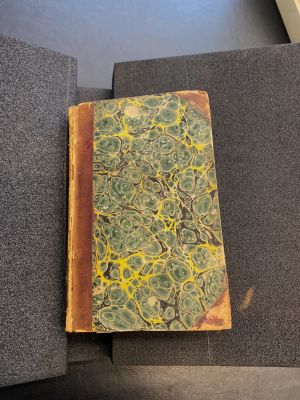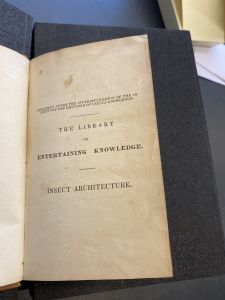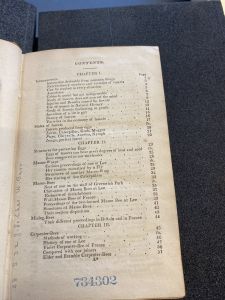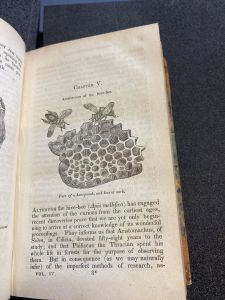Insect Architecture

Overview
Insect Architecture by James Rennie is a nonfiction guide to various insects of the Western world. The novel was originally published anonymously in 1830 for the Library of Entertaining Knowledge in London but was later republished at various locations. One copy of the novel, published by Lily & Wait in Boston, is now housed in University of Pennsylvania’s Kislak Center for Special Collections.
Background
James Rennie
James Rennie was a professor of natural sciences at King's College and was a noted naturalist of his time. He wrote several guides on botany and zoology, mostly for The Society for the Diffusion of Useful Knowledge
Contents
Insect Architecture contains information on the life, anatomy, and constructions of various insects. It is organized into 20 chapters by species. The organization lends itself to a casual reader who, rather than read the book chronologically, would instead prefer to read various sections based on particular interest. While highly technical language is used throughout the book, the author still writes in a relatively casual manner; therefore, it can be concluded that this book was meant to appeal to a wide range of audiences - from a casually interested reader to a naturalist like Rennie himself.
Illustrations
The novel is embellished throughout with woodblock engraving illustrations displaying various insects and structures. These illustrations were made by Abel Bowen, a noted illustrator and publisher of the time.
Provenance
The book came into the hands of Charles W. Burr, MD, an avid book collector. It was a part of his collection until his death, when his collection was given to The University of Pennsylvania where it remains today.
Material Analysis
Insect Architecture is made out of cotton rag paper which indicates it was made to last. [1] Some of the pages have moderate foxing, but it remains mostly in excellent condition. The book is bound about a quarter of the way in leather, the preferred method for binding during the early 19th century. [2] The book is a codex, made in an octavo format. The book has no marginalia or asemic markings which indicates the novel functioned practically as a coffee table book, perhaps flipped through by a casual reader, but it was not carefully studied.
References
- ↑ Suarez, Michael F.; Woudhuysen, H. R., eds. (2010-01-01). The Oxford Companion to the Book (1 ed.). Oxford University Press. doi:10.1093/acref/9780198606536.001.0001. ISBN 978-0-19-860653-6.
- ↑ The Bookbinder's Manual : Containing a Full Description of Leather and Vellum Binding : Also, Directions for Gilding of Paper & Book-edges, and Numerous Valuable Recipes for Sprinkling, Colouring, & Marbling : Together with a Scale of Bookbinders' Charges : a List of All the Book and Vellum Binders In London, &c., &c. 5th ed. London: William Strange, n185.


